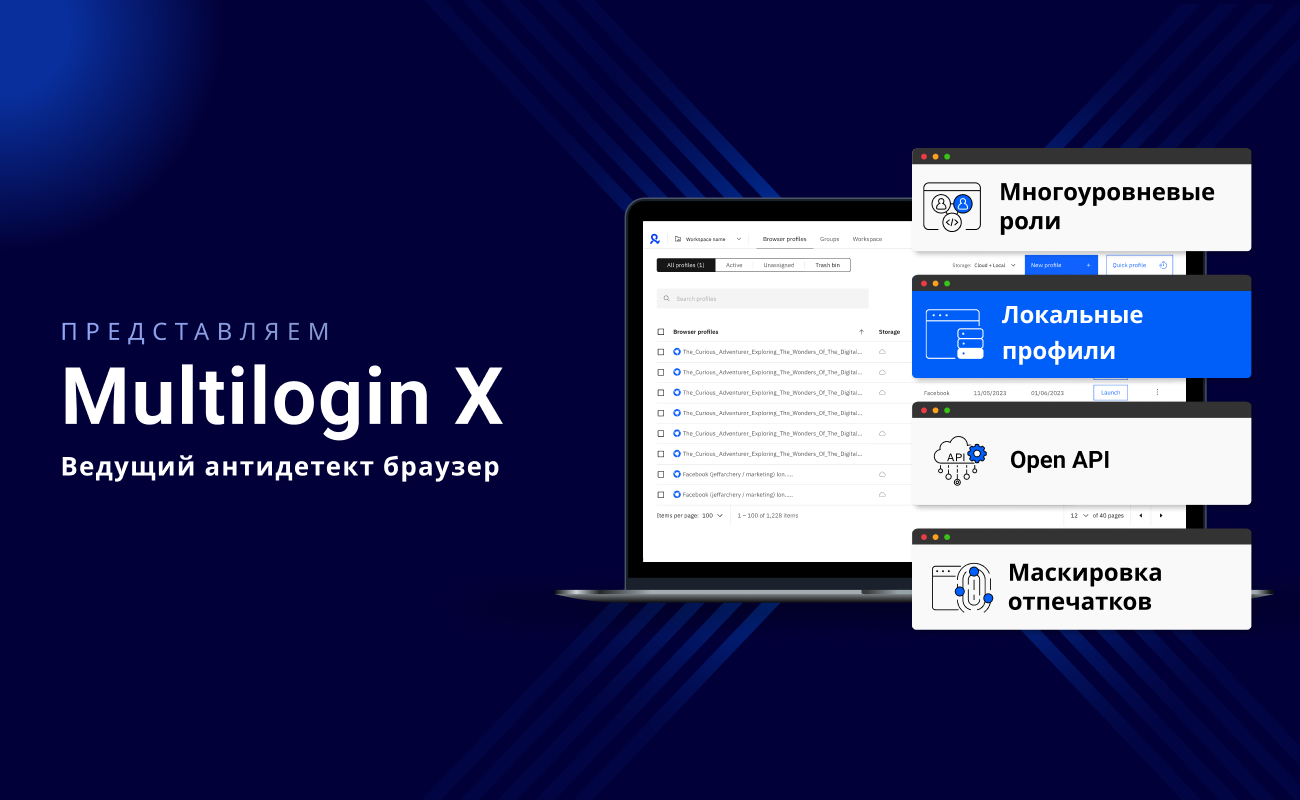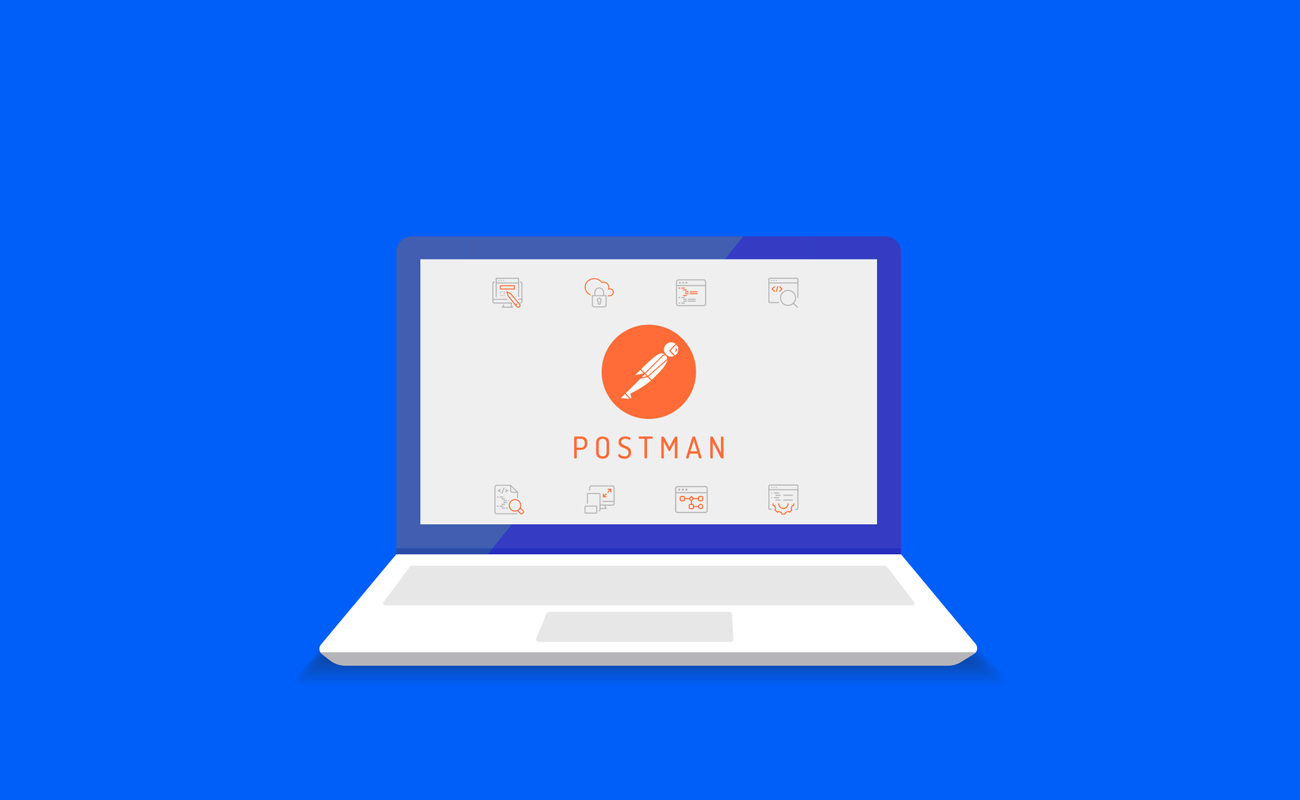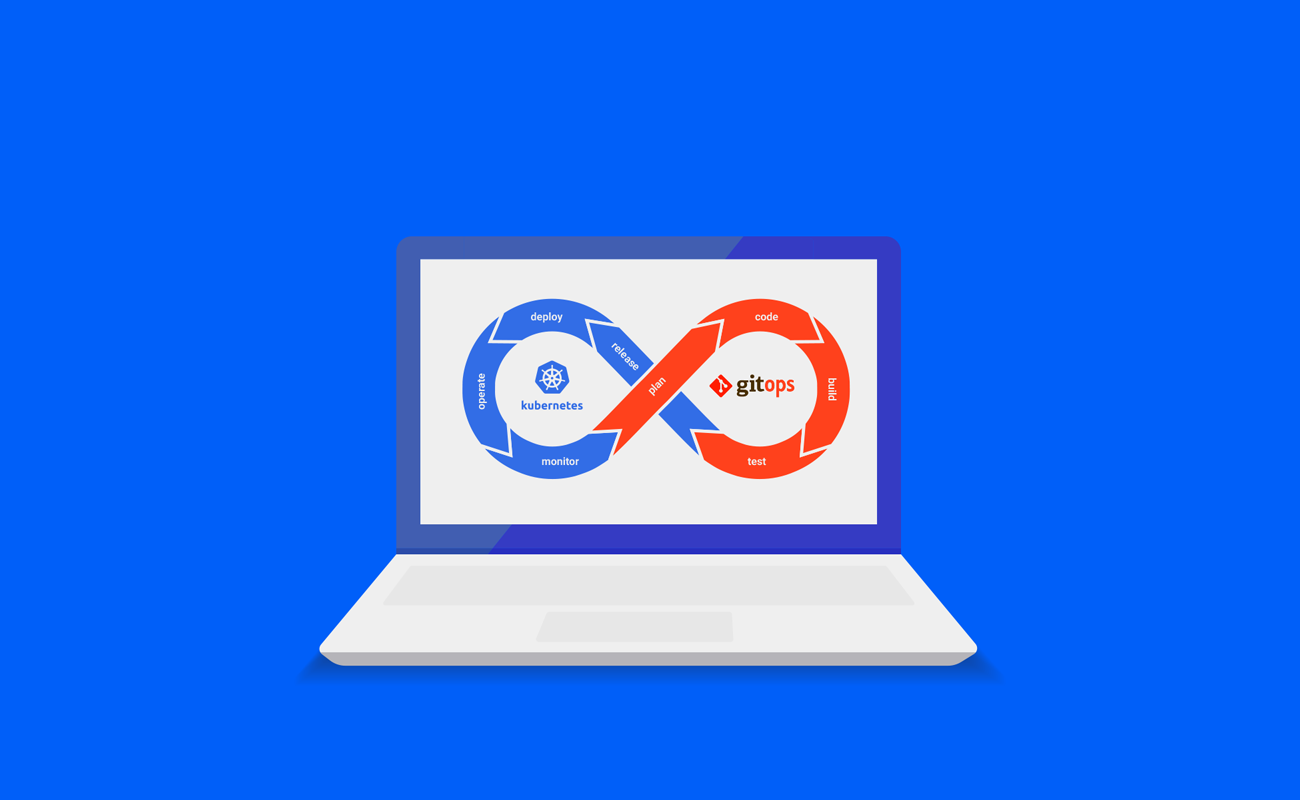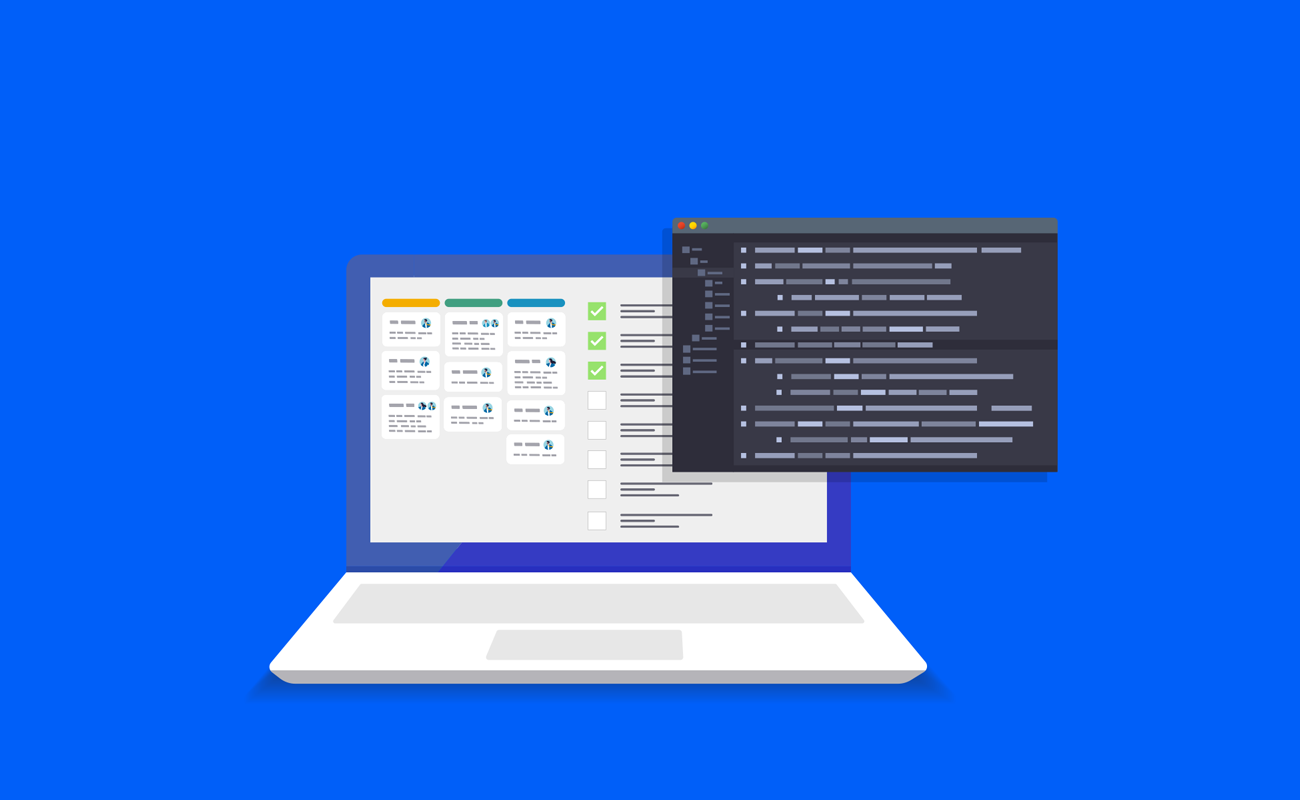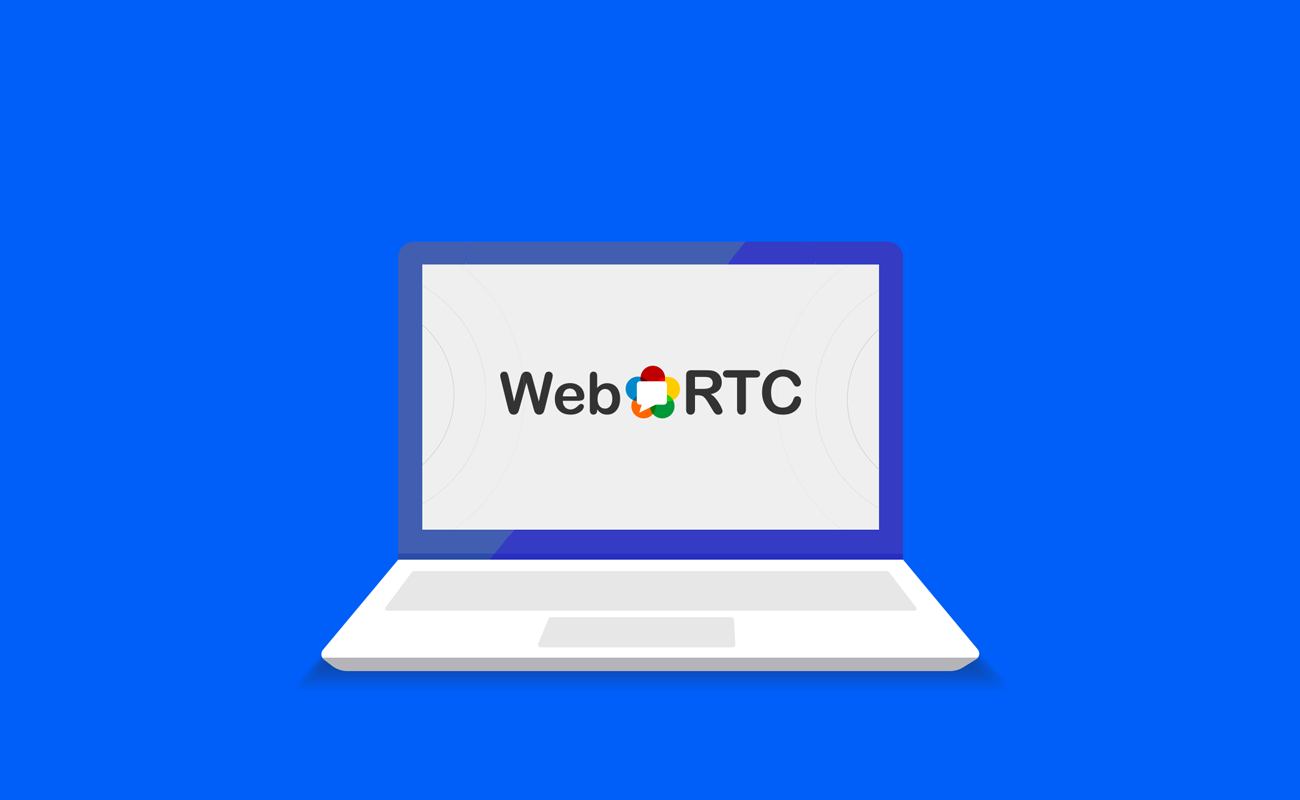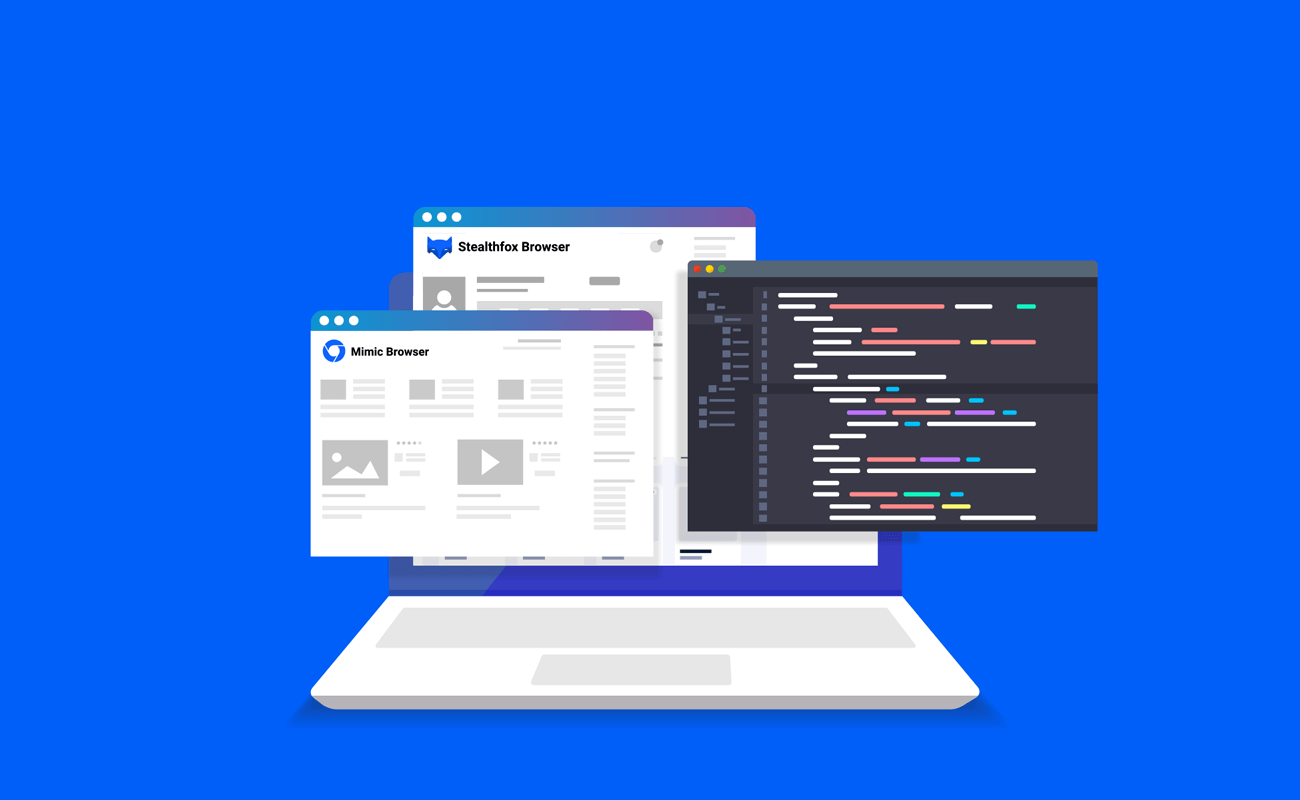
Using Anti-Detect Browsers For Web Scraping
SEPTEMBER 14, 2023
Web scraping is no longer the domain of just a few tech-savvy companies. 26% of companies use web scraping for consumer research, while 19% scrape contacts from social media platforms like Twitter and LinkedIn.
But here's the kicker: Web scraping is not a walk in the park, thanks to challenges like CAPTCHAs and IP bans. That's where anti-detect browsers come in, offering a stealthy approach to dodge these roadblocks. Intrigued? Let's dive deeper.
Understanding Web Scraping
Web scraping extracts data from websites for various applications, such as market research, machine learning, and affiliate marketing. It involves making HTTP requests to a website and parsing the HTML to retrieve the needed data.
Tools of the Trade
Different tools serve different purposes in the web scraping landscape:
Selenium: Ideal for scraping JavaScript-heavy websites but can be slow. Selenium has lost its appeal compared to more modern tools like Playwright, as web scraping expert Pierluigi Vinciguerra noted in his HackerNoon article.
Beautiful Soup: Excellent for static websites but struggles with dynamic content. It's a go-to tool for Python developers who are just getting started with web scraping.
Scrapy: A robust Python framework for large-scale scraping projects. It's highly customizable and offers robust features for advanced users. (Learn more about the differences between Scrapy and Beautiful Soup )
Playwright: Gaining popularity for its flexibility and ease of use. It's a modern tool that efficiently handles static and dynamic websites. (Learn more about test automation with Playwright )
Skillset Required for Web Scraping
Effective web scraping requires a firm grasp of programming languages like Python or JavaScript and an understanding of HTML, CSS, and XPath for data extraction.
Challenges in Web Scraping
As you delve into the intricacies of web scraping, it becomes evident that numerous hurdles can impede the extraction of valuable data.
These challenges arise from various factors, including websites' efforts to safeguard against automated scraping through CAPTCHAs and rate limiting, the risk of IP blocking due to suspicious activities, and the formidable defenses deployed by advanced anti-bot systems like Cloudflare and PerimeterX.
Advanced anti-bot systems like Cloudflare and PerimeterX utilize signature-based machine-learning algorithms to detect and block scraping bots.
CAPTCHAs
One of the most common roadblocks, CAPTCHAs, can significantly slow down your scraping process. Advanced anti-bot systems like Cloudflare utilize signature-based detection and machine learning algorithms to identify bot traffic, as discussed in this Infatica article.
Rate Limiting
Websites often have rate limits to prevent automated scraping, making scraping large volumes of data challenging. This is particularly problematic for large-scale projects that require real-time data.
IP Blocking
Your IP can get banned if a website detects unusual activity, requiring you to use proxies to continue scraping. This adds an extra layer of complexity and cost to your scraping project.
Anti-Scraping Systems
Cloudflare and PerimeterX utilize signature-based machine-learning algorithms to detect and block scraping bots. They focus on real-time behavior analysis and machine learning for bot detection.
Introduction to Anti-Detect Browsers
Anti-detect browsers are specialized web browsers designed to overcome the challenges of traditional web scraping methods. They offer a range of features that make them highly effective for data extraction tasks.
Features and Benefits of Anti-Detect Browsers
Navigating the labyrinthine world of web scraping can be daunting. But anti-detect browsers have features that can make your life significantly easier. Here's a deep dive into some of the most impactful features and why they benefit senior developers.
User Profile Management
The ability to manage multiple accounts is a game-changer in the realm of web scraping. You can create and manage multiple profiles with anti-detect browsers, each with cookies, cache, and local storage.
This is particularly useful for affiliate marketing, multi-accounting strategies, or team members working on the same project requiring different access levels. The ease of switching between these profiles makes data collection more efficient and organized, saving you both time and computational resources.
User Agent Spoofing
User-agent spoofing is another powerful feature that anti-detect browsers bring to the table. By emulating different user agents, these browsers make it exceedingly difficult for websites to identify your scraping bot.
This is crucial for bypassing browser fingerprinting techniques many websites employ to detect and block bots.
The ability to spoof user agents allows you to scrape data from a broader range of sources without triggering anti-bot mechanisms, thereby expanding the scope and reliability of your data collection efforts.
Proxy Integration
Last but not least, the ease of proxy integration is a feature that cannot be overstated. Anti-detect browsers allow for seamless integration of proxy servers, enabling you to rotate IPs and bypass rate limits set by websites.
This is particularly beneficial for large-scale scraping projects that require data extraction from multiple sources. The proxy integration feature also adds an extra layer of anonymity, making it even more challenging for websites to detect and block your scraping activities.
This ensures you can scrape data more reliably and efficiently without the constant fear of getting banned or rate-limited.
By leveraging these features, senior developers can overcome the challenges of web scraping and optimize their data collection strategies for better results.
Best Practices for Web Scraping with Anti-Detect Browsers
So, let's assume you set up the choice of your anti-detect browser and are ready to scrape. But wait, even with the most advanced tools, you can still run into issues if you don't follow some best practices. Here's a step-by-step guide to ensure your web scraping journey is as smooth as a hot knife through butter.
Rate Limiting: The Gentleman's Approach
First and foremost, don't be that guy who bombards a website with a thousand requests per second. It's not just impolite; it's also a surefire way to get your IP address banned.
Implement rate limiting in your scraping code to ensure you're making requests at a frequency that is respectful to the website's server resources.
This is especially crucial when scraping smaller websites that don't have the server capacity to handle a high volume of requests. Being a gentleman in the scraping world pays off, as it reduces the likelihood of getting detected and blocked.
Randomize Timings: The Art of Being Human
Web scraping bots are often detected due to their machine-like behavior. Introducing random delays between your requests can make your bot's behavior appear more human-like.
This is a simple yet effective way to bypass many anti-bot measures. For instance, instead of making a request every two seconds, randomize the intervals to range between 1.5 and 2.5 seconds. This unpredictability makes it harder for anti-bot algorithms to flag your activities, thereby increasing the longevity and effectiveness of your scraping operations.
Monitor Logs: The Watchtower
Monitoring logs is like having a watchtower on a battlefield. It gives you a bird's-eye view of what's happening during your scraping process.
Watch for HTTP status codes like 403 or 429, which indicate that the website is onto you. Monitoring logs can also help you troubleshoot issues in real time, allowing you to make quick adjustments to your scraping strategy. This proactive approach can save you hours of debugging later on.
Bonus Tip: Use a Backup Plan
Always have a backup plan in place. Whether it's a secondary proxy service or an alternative scraping method, having a Plan B ensures that data collection doesn't come to a grinding halt if something goes awry.
FAQs
Do anti-detect browsers work for web scraping?
Anti-detect browsers are designed to make automated browsing more closely resemble human browsing behavior. Thereby making it difficult for websites to detect scraping activities. They use IP rotation, user agent spoofing, and JavaScript execution to bypass detection mechanisms.
What is the best browser for web scraping?
There is no one-size-fits-all answer to this question, as the "best" browser for web scraping depends on your specific needs, the complexity of the websites you are scraping, and your technical expertise.
Can you get detected web scraping?
Websites can detect web scraping through various means, such as rate limiting, CAPTCHAs, and analyzing user behavior patterns. However, anti-detect browsers make it incredibly challenging for websites to do so. They employ techniques that make automated requests appear more human-like, bypassing many standard detection methods.
Conclusion
From mass data collection to price comparisons in real estate and travel, web scraping has diverse applications across industries.
Using anti-detect browsers responsibly can help navigate these challenges effectively. While anti-detect browsers can help avoid detection, they should be used responsibly and follow applicable laws and website terms of service.
